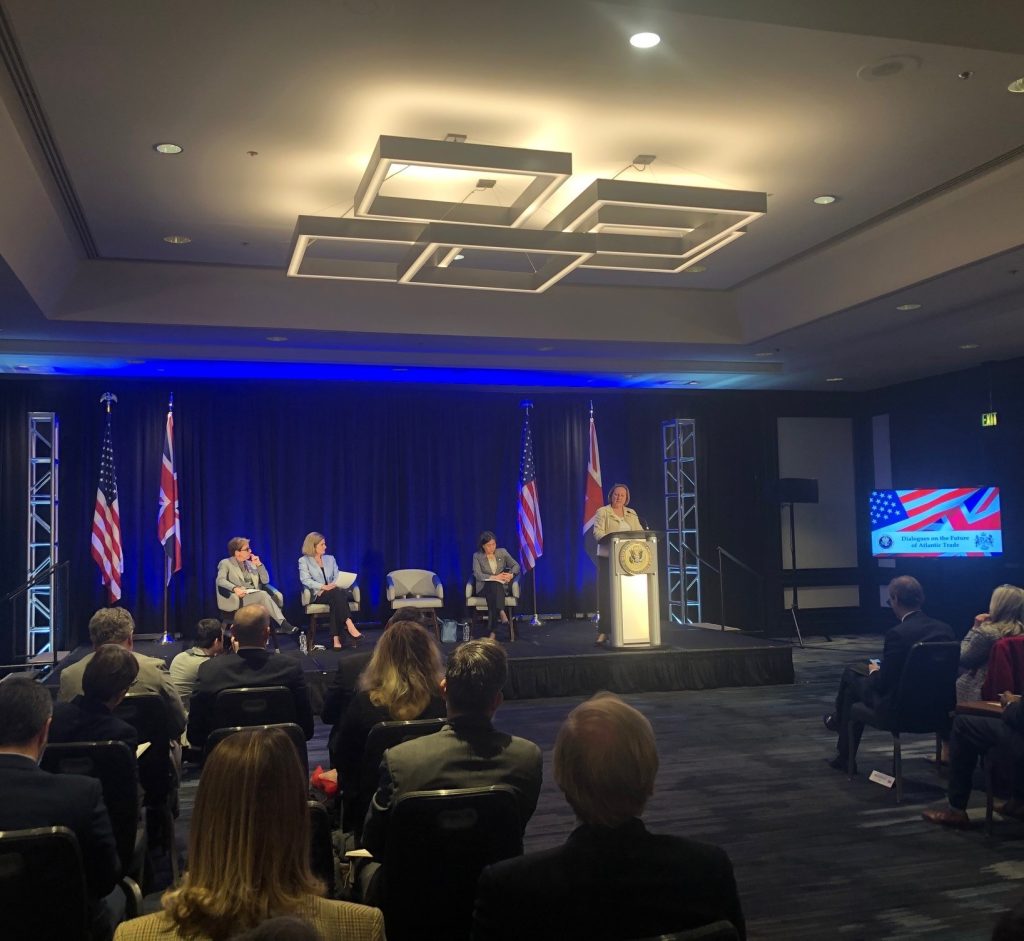Notes from the CEO
Published: 4 April 2022
Steel, Trade and IP - Notes from the CEO
Share this page

Duncan Edwards
CEO
BritishAmerican Business
Unsurprisingly, and quite rightly, the western world is focused on the dreadful war in Ukraine and its implications. I won’t add to the commentary from people much better qualified than I, beyond the real challenge facing companies about how to respond. The vast majority of companies and their leaders have a strong moral compass and want to do the ‘right thing’ but balancing the interests of different stakeholder groups in this issue, as in so many others, is not easy.
Tensions around the relationship with China and the shock of the pandemic had already triggered a re-assessment by many companies of their global positions and the invasion of Ukraine has dramatically accelerated this work. In his recent Chairman’s letter, Larry Fink of BlackRock says “… the Russian invasion of Ukraine has put an end to the globalization we have experienced over the last three decades.” If this is right, the economic and security relationship between the US and the UK will become even more important.
Hard as it is to focus on other things, there are three recent developments in the sphere of trade that BAB members should have a view on. First, after months of negotiation, the UK and US reached agreement on a route to lift the Section 232 Tariffs on steel and aluminium exports from the UK and the subsequent rebalancing tariffs imposed by the UK. These tariffs haven’t gone completely but exports, up to the historic volumes, will be able to be made tariff free under the agreement from June. This is good news, but behind the headlines you can see the ongoing concern that the US has about supply of steel from non-market producers leaking into the US market, including from the UK. This joint statement from the US and UK is worth a quick read.

The first of the newly established US/UK Dialogues on the Future of Atlantic Trade was held on March 21st in Baltimore where I was pleased to represent BAB along with a number of our member companies. BAB continues to believe that a full Free Trade Agreement would benefit both countries but absent this (and in the short term at least, this is unlikely) we have called for continuing discussion on ways to further remove unnecessary financial and regulatory barriers to trade and investment. In December we published a paper calling for exactly this approach and a raft of clear actionable initiatives that can be taken without the need for a full agreement. The meetings were terrific, and the decision to involve representatives from organized labor and other stakeholder groups added a helpful perspective to those, like ours, from business. The usual concerns with trade deals around wage arbitrage and off-shoring don’t apply to a UK US deal but the US team is clearly focused on big picture issues.
We are hopeful that this Dialogue will continue and lead to standalone agreements around help for SMEs, a world leading agreement on Digital Trade and a joint Sustainability Agenda to provide clarity for businesses about government expectations on climate change obligations and environmental reporting. You can see the statement from the US and UK governments here.
Less positively, the final issue I want to highlight is the worrying decision from the US to support a weakening of Intellectual Property protection through the proposed TRIPS Waiver at the WTO. BAB members are astonished that the US, which has historically been the most committed and active supporter of IP protection should be taking this position. There was a natural human reaction in 2020 at the height of the pandemic about how the developed world could ensure that vaccines and other therapeutic products would reach everyone and this led to this proposed waiver. But the situation has changed since then and availability of the vaccines is not the problem. Fundamentally, without adequate protection of IP, the incentive to create new technologies and new products is totally undermined. One would have thought that the USA, more than any other country, would understand this. It isn’t done yet and we will continue to make the argument on your behalf.
For those of you interested in these trade issues please join our annual trade and geopolitics update in partnership with AIG on April 5th, details here.
And for any UK companies looking at expanding or investing in the USA, you can register for our 2022 Trade Expo where you can meet virtually with representatives of 10 different regions of the USA who would all like you to help you.
And finally, look out for our annual BAB and Bain Transatlantic Confidence Index survey questionnaire which will be sent out later this month.
